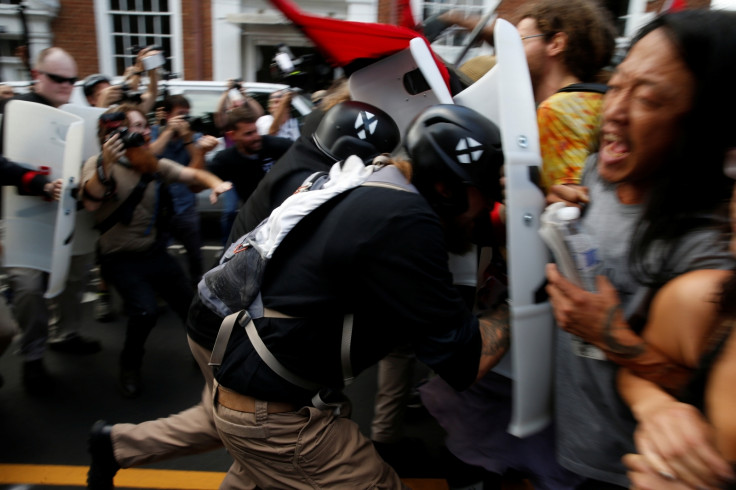Donald Trump under fire for refusing to denounce far-right violence in Charlottesville
Republican senators have called on US president to "call evil by its name".
Donald Trump has come under fire for his response to the violence in Charlottesville, Virginia, this week.
After clashes broke out between white supremacists and protesters in the university town on Saturday (12 August), the US president condemned the violence "on many sides" but stopped short of denouncing the far-right.
White supremacist James Fields from Ohio killed 32-year-old Heather Meyer and injured at least nineteen others when he ploughed his car into a crowd.
Fields has been arrested and charged with second degree murder. Two police officers were killed in a separate incident.
Trump condemned "hatred, bigotry and violence on many sides" during a live address and took to Twitter to share his views: "We ALL must be united & condemn all that hate stands for. There is no place for this kind of violence in America. Lets come together as one!"
A White House spokesperson later expanded on Trump's remarks and said the president "was condemning hatred, bigotry and violence from all sources and all sides. There was violence between protesters and counter-protesters today."
We ALL must be united & condemn all that hate stands for. There is no place for this kind of violence in America. Lets come together as one!
— Donald J. Trump (@realDonaldTrump) August 12, 2017
But the president was criticised for refusing to openly denounce the far-right demonstrators, who included neo-Nazis and Ku Klux Klan members, responsible for the violence.
The white supremacists were gathered at a rally against the removal of a statue of General Robert E Lee, who commanded forces of the pro-slavery confederacy during the US Civil War.
Cory Gardner, Republican Senator of Colorado, wrote on Twitter: "Mr President - we must call evil by its name. These were white supremacists and this was domestic terrorism."
Republican Senator Marco Rubio echoed Gardner's view. "Very important for the nation to hear @potus describe events in #Charlottesville for what they are, a terror attack by #whitesupremacists", he wrote on Twitter.
Utah Senator Orrin Grant Hatch also called on the White House to "call evil by its name."
"My brother didn't give his life fighting Hitler for Nazi ideas to go unchallenged here at home," he said.
Another senior Republican, Senator Ted Cruz, called the car ramming a "grotesque act of domestic terrorism."
Very important for the nation to hear @potus describe events in #Charlottesville for what they are, a terror attack by #whitesupremacists
— Marco Rubio (@marcorubio) August 12, 2017
Mr. President - we must call evil by its name. These were white supremacists and this was domestic terrorism. https://t.co/PaPNiPPAoW
— Cory Gardner (@SenCoryGardner) August 12, 2017

© Copyright IBTimes 2024. All rights reserved.






